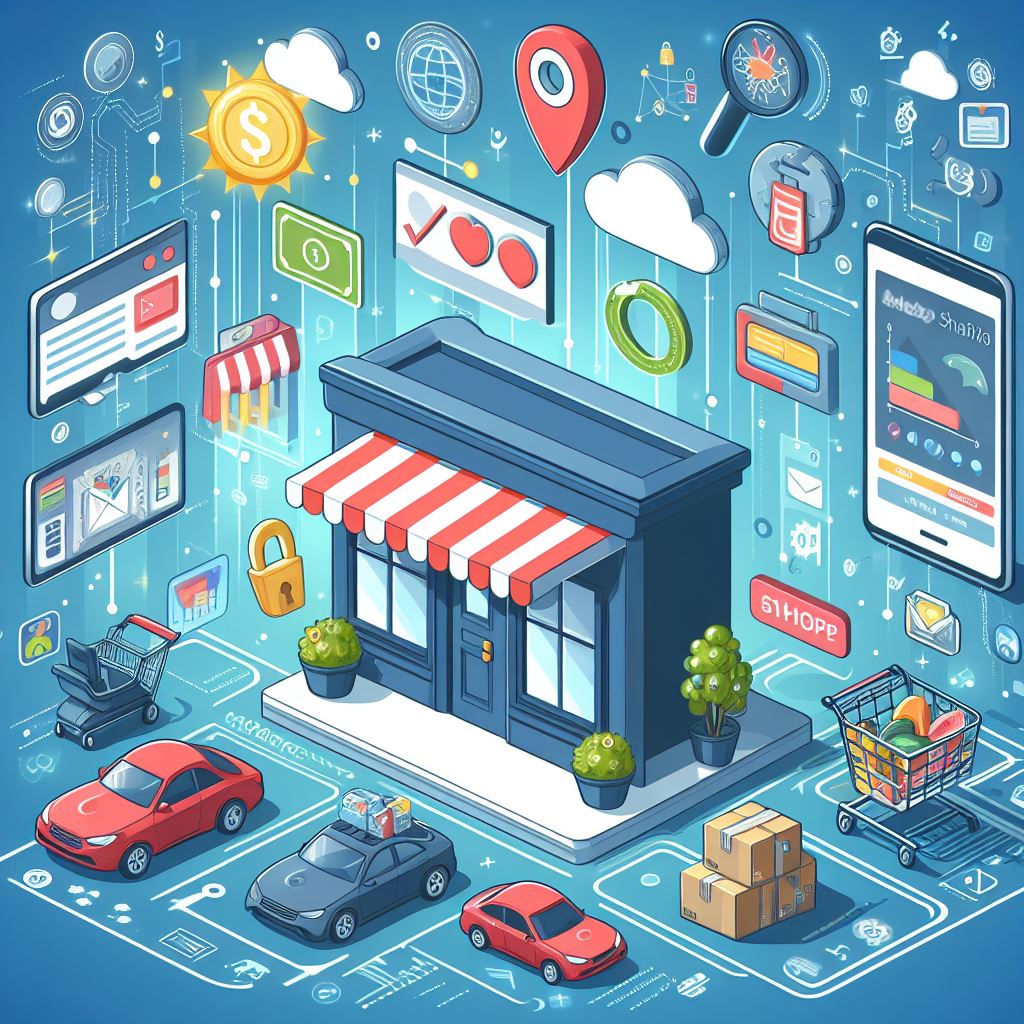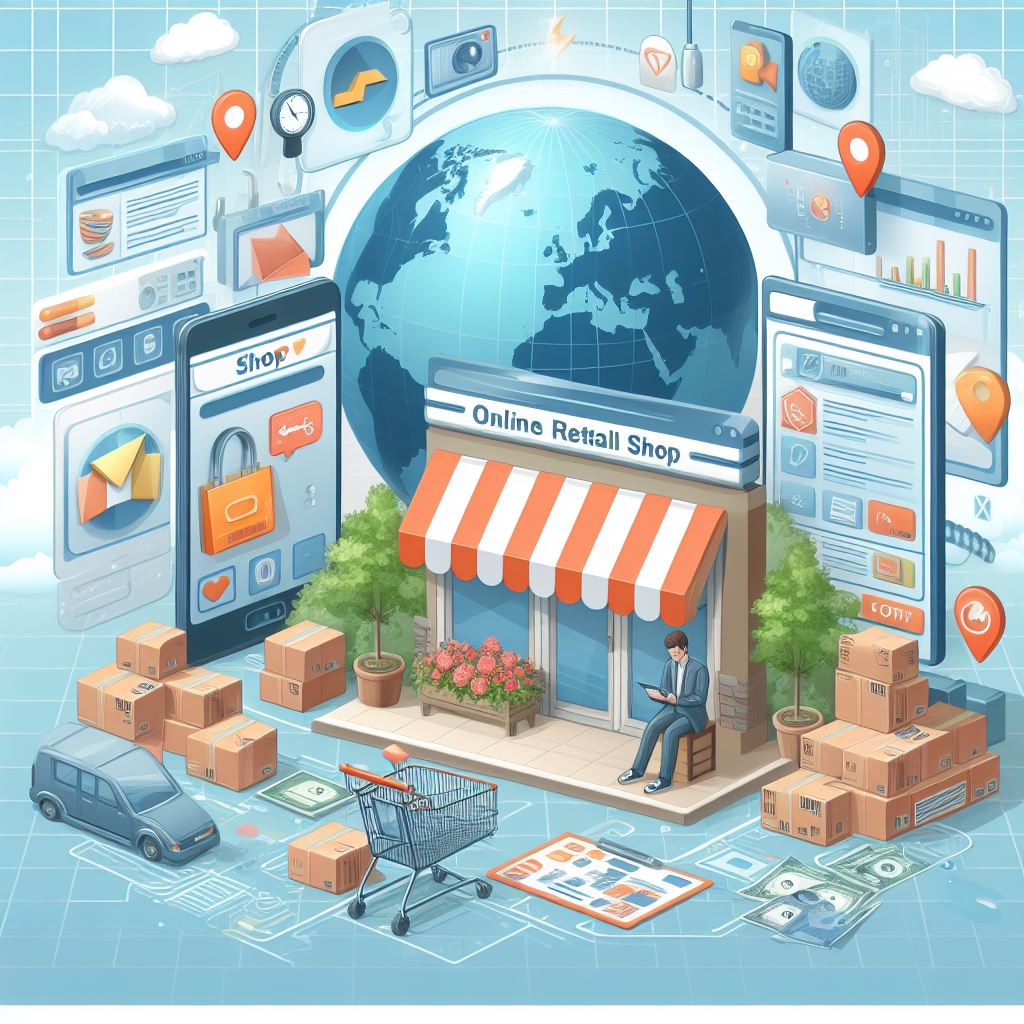What is Ecommerce Everything You Need to Know About it

Ecommerce, short for electronic commerce, is the buying and selling of goods and services over the internet. It has revolutionized the way businesses operate and has opened up a world of opportunities for entrepreneurs and consumers alike. In this article, I will delve into the intricacies of ecommerce, exploring its various aspects and shedding light on its impact on the retail industry. So, let’s dive in and discover everything you need to know about what is ecommerce.
What is Ecommerce and How Does it Work?
At its core, ecommerce involves the online transaction of goods and services. It eliminates the need for physical stores and allows businesses to reach customers across the globe. Ecommerce operates through dedicated websites or online marketplaces, where buyers can browse, select, and purchase products or services. These transactions are facilitated through secure payment gateways, ensuring the safety of both buyers and sellers.
Types of Ecommerce Platforms
Ecommerce platforms serve as the foundation for online businesses. They provide a framework for building and managing an ecommerce website. There are various types of ecommerce platforms available, ranging from open-source solutions to fully hosted platforms. Open-source platforms like Magento and WooCommerce offer flexibility and customization options, while hosted platforms like Shopify and BigCommerce provide ease of use and comprehensive support.
Benefits of Ecommerce for Small Businesses
Ecommerce has leveled the playing field for small businesses, empowering them to compete with larger enterprises. The benefits of ecommerce for small businesses are manifold. It allows them to reach a wider audience and expand their customer base without the need for a physical presence in multiple locations. Ecommerce also reduces overhead costs associated with maintaining a brick-and-mortar store, such as rent and utilities. Additionally, it provides small businesses with valuable insights through analytics, enabling them to make data-driven decisions and optimize their operations.
How to Start an Ecommerce Business
Starting an ecommerce business requires careful planning and execution. Here are the key steps to get you started:
- Identify your niche: Conduct market research to identify a profitable niche with a demand for your products or services.
- Choose a business model: Determine whether you want to sell your own products or become a reseller or dropshipper.
- Register your business: Choose a business name and register it according to the legal requirements of your country or state.
- Create an ecommerce website: Build a user-friendly and visually appealing website using an ecommerce platform.
- Source your products: Establish relationships with suppliers or manufacturers to source your products.
- Set up payment gateways: Integrate secure payment gateways to facilitate online transactions.
- Market your business: Develop a comprehensive marketing strategy to promote your ecommerce business and attract customers.
Key Features of an Ecommerce Website
An effective ecommerce website should possess certain key features to provide a seamless shopping experience for customers. These features include:
- User-friendly navigation: Intuitive navigation ensures easy browsing and quick access to products.
- High-quality product images: Clear and high-resolution product images help customers make informed purchasing decisions.
- Detailed product descriptions: Comprehensive product descriptions provide customers with all the information they need.
- Responsive design: A responsive design ensures that your website looks and functions optimally across all devices.
- Secure payment options: Integration of trustworthy payment gateways instills confidence in customers.
- Customer reviews and ratings: Genuine customer reviews and ratings enhance trust and credibility.
- Effective search functionality: A robust search feature enables customers to find products quickly and easily.
Ecommerce vs. Retail Stores: The Impact on the Industry
The rise of ecommerce has had a profound impact on the retail industry. Traditional retail stores have faced significant challenges as more and more consumers embrace online shopping. Ecommerce offers convenience, a wider selection of products, and competitive pricing, which has led to a decline in foot traffic in brick-and-mortar stores. However, retail stores have also recognized the need to adapt and have started integrating online channels into their business models. Many retailers now offer click-and-collect services, where customers can purchase online and pick up their items in-store. This convergence of ecommerce and retail stores is reshaping the industry and creating new opportunities for both online and offline businesses.
Ecommerce Trends and Statistics
Ecommerce is a dynamic and ever-evolving industry, driven by technological advancements and changing consumer behavior. Here are some key trends and statistics to give you a glimpse into the current state of ecommerce:
- Mobile commerce, or m-commerce, is on the rise, with more and more consumers using their smartphones to make online purchases.
- Personalization and targeted marketing are becoming increasingly important, as customers expect tailored experiences.
- The use of artificial intelligence and chatbots is gaining traction, providing personalized recommendations and improving customer service.
- Social media platforms are becoming powerful ecommerce channels, allowing businesses to reach customers directly.
- Ecommerce sales are projected to reach trillions of dollars globally in the coming years, indicating the immense growth potential of the industry.
Ecommerce Marketing Strategies
Effective marketing is crucial for the success of an ecommerce business. Here are some strategies to consider:
- Search engine optimization (SEO): Optimize your website and product pages for search engines to increase organic traffic.
- Social media marketing: Leverage the power of social media platforms to engage with your target audience and drive traffic to your website.
- Email marketing: Build an email list and send targeted campaigns to promote your products and drive sales.
- Influencer marketing: Collaborate with influencers in your niche to reach a wider audience and build brand awareness.
- Content marketing: Create valuable and informative content to establish yourself as an authority in your industry and attract customers.
Ecommerce Payment Gateways and Security
Payment gateways play a crucial role in ecommerce by ensuring secure and seamless online transactions. The key factors to consider when choosing a payment gateway for your ecommerce business are:
- Security: Look for payment gateways that offer robust security measures, such as encryption and fraud detection.
- Compatibility: Ensure that the payment gateway is compatible with your ecommerce platform.
- Ease of use: Choose a payment gateway that is easy to integrate and provides a user-friendly interface for both customers and merchants.
- Accepted payment methods: Consider the payment methods supported by the gateway and ensure they align with your target market.
- Pricing: Evaluate the fees and transaction costs associated with the payment gateway and choose one that suits your budget.
Ecommerce Fulfillment and Shipping
Efficient fulfillment and shipping processes are essential for providing a positive customer experience. Here are some best practices to optimize your ecommerce fulfillment:
- Inventory management: Implement a robust inventory management system to keep track of stock levels and avoid stockouts.
- Order processing: Streamline your order processing workflow to ensure prompt fulfillment and minimize errors.
- Packaging and labeling: Use sturdy and branded packaging to protect products during shipping and provide a professional presentation.
- Shipping options: Offer a variety of shipping options to cater to different customer preferences and budgets.
- Tracking and delivery notifications: Provide tracking information and send delivery notifications to keep customers informed about the status of their orders.
Ecommerce Customer Service and Support
Exceptional customer service is crucial for building customer loyalty and driving repeat purchases. Here are some tips to provide excellent customer service in your ecommerce business:
- Live chat support: Offer live chat support on your website to address customer queries in real-time.
- Prompt response times: Aim to respond to customer inquiries and complaints promptly to ensure customer satisfaction.
- Self-service options: Provide self-service options such as comprehensive FAQs and knowledge bases to empower customers to find answers to their questions.
- Easy returns and exchanges: Implement a hassle-free returns and exchanges policy to instill confidence in customers.
- Personalized customer experiences: Utilize customer data to personalize interactions and offer tailored recommendations.
Ecommerce Analytics and Tracking
Analytics and tracking are essential for gaining insights into the performance of your ecommerce business and making data-driven decisions. Here are some key metrics to track:
- Website traffic: Monitor the number of visitors to your website and track the sources of traffic.
- Conversion rate: Measure the percentage of visitors who complete a desired action, such as making a purchase.
- Average order value: Calculate the average amount spent by customers per order to understand purchasing patterns.
- Customer lifetime value: Determine the value of a customer over their lifetime to assess the effectiveness of your marketing efforts.
- Cart abandonment rate: Track the percentage of customers who add items to their cart but do not complete the purchase to identify areas for improvement.
Ecommerce Success Stories
Ecommerce has witnessed numerous success stories, with businesses achieving remarkable growth and profitability. Here are a few examples:
- Amazon: Started as an online bookstore, Amazon has become the world’s largest ecommerce marketplace, offering a wide range of products and services.
- Alibaba: Founded in China, Alibaba has transformed into a global ecommerce giant, connecting businesses and consumers worldwide.
- Zappos: Zappos revolutionized online shoe retailing by focusing on exceptional customer service and offering a wide selection of shoes.
- Warby Parker: Warby Parker disrupted the eyewear industry by offering affordable and stylish glasses through their online platform.
- ASOS: ASOS is a leading fashion retailer that has leveraged ecommerce to reach a global audience and offer a diverse range of fashion products.
Conclusion
In conclusion, ecommerce has revolutionized the way businesses operate and has opened up a world of opportunities for entrepreneurs. It offers convenience, accessibility, and a global reach, making it an attractive option for both businesses and consumers. By understanding the intricacies of ecommerce and implementing effective strategies, businesses can thrive in this dynamic and ever-evolving industry. So, take advantage of the immense potential of ecommerce and unlock new heights for your online store.
If you’re looking to take your online business to new heights with a professional, conversion-focused website, look no further than Ultraboly. Our team of expert web designers specializes in crafting stunning, user-friendly eCommerce websites that drive sales and outshine your competition.
With years of experience in the industry, we understand the intricacies of creating a seamless online shopping experience that captivates and retains customers. From intuitive navigation to visually appealing product displays, we meticulously design every aspect of your website to maximize conversions and boost your bottom line. Don’t let a subpar online presence hold your business back. Partner with Ultraboly and unlock the full potential of eCommerce success. Contact us today to schedule a free consultation and learn how we can elevate your online presence to new heights.







This is such a comprehensive guide! As someone who’s new to e-commerce, I found the breakdown of different e-commerce models extremely helpful. Thanks for making it easy to understand.